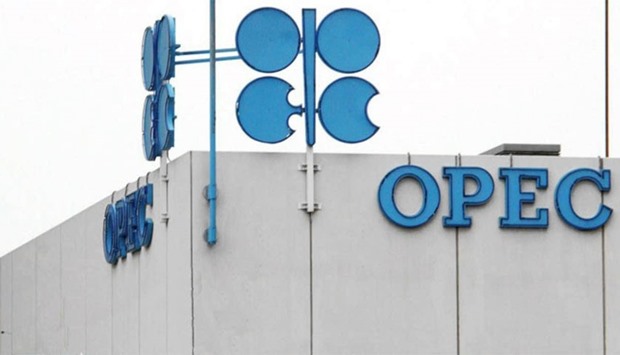The Organisation of Petroleum Exporting Countries will hold informal talks at a conference in Algiers next month and considers the recent decline in oil prices temporary, the group’s president said yesterday.
“Expectation of higher crude oil demand in the third and fourth quarters of 2016, coupled with decrease in availability, is leading the analysts to conclude that the current bear market is only temporary and oil price would increase during later part of 2016,” HE the Minister of Energy and Industry, Dr Mohamed bin Saleh al-Sada, holder of Opec’s rotating presidency, said in a statement on the group’s website. Members constantly discuss ways to stabilise the market, he said.
Oil tumbled into a bear market last week, ending a recovery that saw prices almost double from a 12-year low in February. The renewed decline keeps pressure on many member countries that are still unable to balance their budgets. Opec ministers last met in June when they rejected a proposal to adopt a new output ceiling, sticking to a policy of unfettered production.
Al-Sada’s comments indicate the group is concerned by the drop in prices and may consider action if the market doesn’t stabilise at a higher level, according to Robin Mills, chief executive officer of consultancy Qamar Energy.
“If they’re going to talk about anything that’s worth announcing to the market, it would have to be an idea like the previously proposed freeze in oil production,” Mills said by phone from Dubai. “I don’t hold much credence in that coming about, but they could be in a better condition to agree on a freeze by the end of the year than they have been.”
Russia sees no need for renewing discussion of an oil-output freeze at current crude prices, while leaving open the possibility for the future, Energy Minister Alexander Novak told journalists in Moscow yesterday. Novak didn’t rule out speaking with his counterparts from Opec member states at the meeting of the International Energy Forum in Algiers being held September 26-28.
Russia, Saudi Arabia and other major oil exporters met in Doha in April in a bid to stabilise global markets by putting caps on output. The effort collapsed after Saudi Arabia demanded that Iran be a part of the agreement. At the time, Iran had ruled out any limits on its output as it ramped up production after the lifting of international sanctions.
Iran will probably raise production to pre-sanctions levels by the end of the year, while Saudi Arabia will also be selling more crude as domestic use of fuel during the country’s summer months slows, Mills said. Iran is pumping about 3.8mn barrels of crude a day and exporting about 2mn of that, Mohsen Ghamsari, director of international affairs at National Iranian Oil Co, said in an interview in Tehran last month. That’s allowed it to return to about 80% of the market share it had before the restrictions, he said.
The latest drop in prices won’t last, al-Sada said.

OPEC
